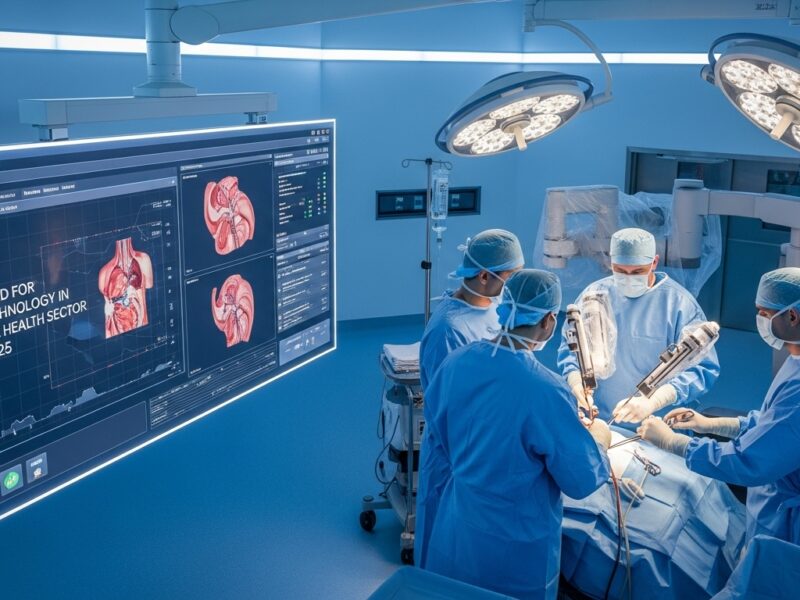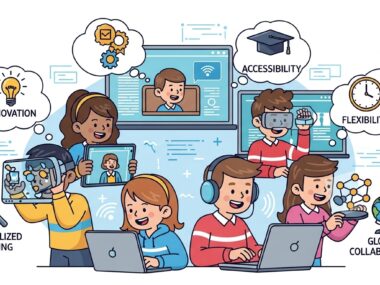In 2025, the world of healthcare is no longer the same as it was a decade ago. Technology has completely transformed how doctors treat patients, how hospitals operate, and how ordinary people access medical services. From artificial intelligence (AI) in healthcare to telemedicine services, the need for technology in the health sector is growing faster than ever. The truth is simple: without modern technology, healthcare would struggle to keep up with the demands of today’s world.
In this article, we’ll explore why technology is now the heartbeat of the health sector, the benefits it brings, the challenges it faces, and the opportunities ahead. Whether you’re a medical student, a healthcare worker, or just someone interested in the future of medicine, this is a topic you cannot afford to ignore.
Why the Need for Technology in the Health Sector 2025
The demand for quality healthcare is increasing worldwide. Populations are growing, life expectancy is rising, and people are living with more chronic diseases. Traditional healthcare methods alone cannot meet these demands. This is where healthcare technology becomes the solution.
Some of the main reasons the health sector needs technology include:
- Faster Diagnosis and Treatment – With tools like AI-powered medical software, doctors can detect illnesses faster and with higher accuracy.
- Better Patient Care – Technology helps improve patient monitoring, treatment plans, and follow-ups.
- Access to Remote Healthcare – Telemedicine allows patients to connect with doctors without visiting a hospital.
- Cost-Effectiveness – Hospitals can reduce operational costs through automation, digital records, and data-driven decision-making.
- Data-Driven Research – Large amounts of health data can be analysed to discover patterns, trends, and better treatments.
Key Areas Where Technology is Transforming Healthcare
1. Telemedicine and Virtual Care
Telemedicine is no longer just a trend—it is the future. In 2025, millions of patients across the globe are consulting doctors from the comfort of their homes. This saves time, reduces hospital overcrowding, and ensures people in rural areas also get medical attention.
2. Artificial Intelligence (AI) in Healthcare
AI is one of the biggest game changers in healthcare. With AI, doctors can detect diseases like cancer, heart problems, and diabetes earlier than ever before. AI also helps in predicting patient risks, analysing medical images, and even suggesting treatment options.
3. Electronic Health Records (EHRs)
Gone are the days of bulky paper files. Today, hospitals rely on electronic health records to store, update, and share patient information securely. This ensures better coordination between doctors, reduces errors, and makes patient history easily accessible.
4. Wearable Devices and Remote Monitoring
Smartwatches and fitness trackers are no longer just lifestyle gadgets—they are part of healthcare. These devices monitor heart rate, blood pressure, oxygen levels, and even detect early signs of medical emergencies. For patients with chronic diseases, wearable technology is a life-saver.
5. Robotics and Surgery
Robotic-assisted surgeries are now common in advanced hospitals. Robots help surgeons perform complex procedures with higher precision, less pain, and faster recovery times for patients.
6. Blockchain for Healthcare Security
Healthcare deals with sensitive patient data. In 2025, blockchain technology is becoming a trusted tool for securing medical records and ensuring that patient data is not tampered with or leaked.
Also Explore Digital Marketing Top Websites to Learn in 2025
Benefits of Technology in the Health Sector
- Improved Patient Outcomes – Better diagnosis and personalized treatments lead to healthier patients.
- Reduced Healthcare Costs – Automation and digital systems save money for both hospitals and patients.
- Accessibility – Even patients in remote villages can now access quality healthcare via mobile apps.
- Efficiency in Hospitals – With electronic systems, hospitals reduce paperwork, long queues, and errors.
- Global Collaboration – Doctors across the world can share research and learn from each other in real time.
Challenges of Using Technology in Healthcare
While the benefits are huge, there are challenges too:
- High Costs of Implementation – Not all hospitals can afford advanced systems.
- Data Privacy Concerns – Hackers and cyberattacks pose risks to patient records.
- Resistance to Change – Some medical professionals prefer traditional methods.
- Training Gaps – Doctors and nurses need proper training to use new technologies effectively.
- Technology Dependence – Over-reliance on machines can sometimes reduce human judgment.
The Future of Healthcare Technology in 2025 and Beyond
Looking forward, we can expect even greater innovations:
- AI-powered personal health assistants on mobile phones.
- Smart hospitals fully run on automation.
- Genomics and biotechnology to create personalized medicine.
- Virtual reality (VR) training for medical students.
- Robotic caregivers for elderly patients.
The future is clear: technology and healthcare will continue to grow together. Hospitals, governments, and private companies must invest in medical technology to provide better, safer, and more affordable healthcare worldwide.
Conclusion
The growing need for technology in the health sector in 2025 cannot be overstated. From AI to telemedicine, from robotic surgery to electronic records, every part of healthcare is being reshaped by innovation. While challenges exist, the opportunities are far greater.
If you are a healthcare professional, embracing technology is no longer optional—it is a necessity. If you are a patient, technology ensures that you get faster, better, and more reliable treatment than ever before.
Technology is not just helping healthcare—it is saving lives every single day.
Helpful Resources
Here are some trusted links to explore more about healthcare technology:
- World Health Organization – Digital Health
- National Institutes of Health – Health IT
- HealthIT.gov – The Future of Healthcare Technology






